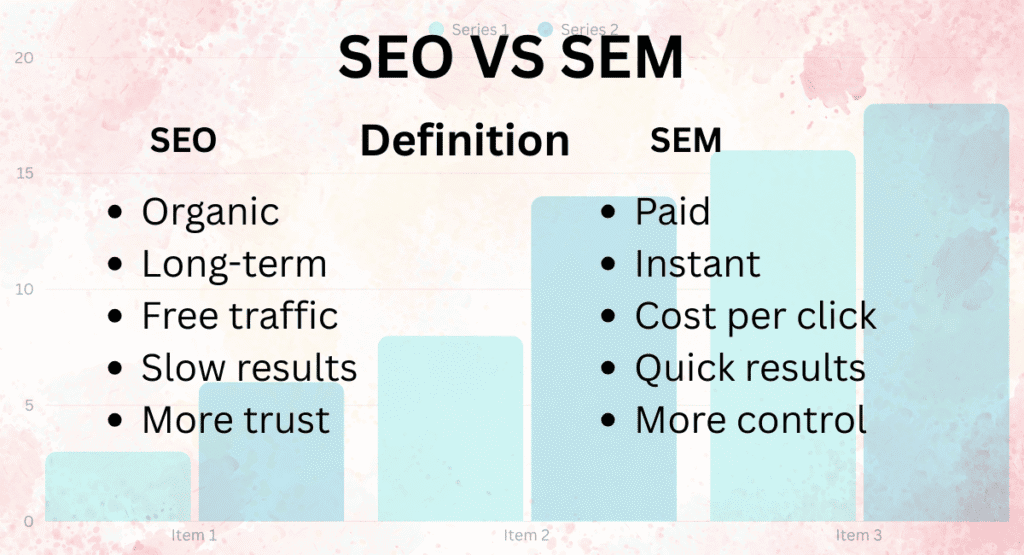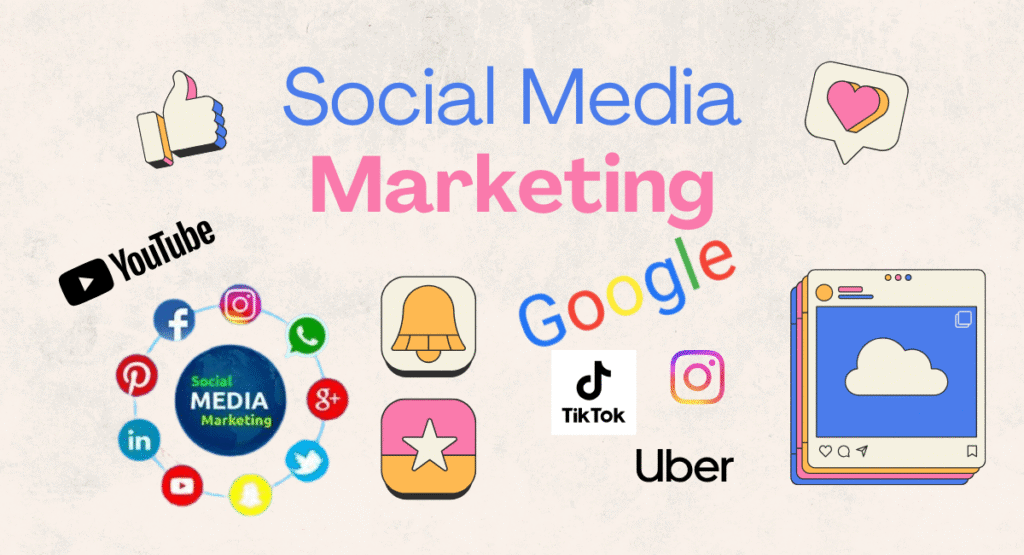What is Digital Marketing? A Beginner’s Guide
Introduction
In today’s digital-first world, businesses can’t survive with only word-of-mouth or traditional advertising. Customers spend most of their time online — searching on Google, scrolling social media, watching YouTube, or reading blogs. This is where digital marketing comes in.
Digital marketing is the practice of promoting products or services using digital channels such as websites, search engines, social media, email, and mobile apps. For beginners, it is the foundation of building an online presence, reaching the right audience, and growing a brand effectively.
In this beginner’s guide, we’ll explore how digital marketing works, its types, why it’s more powerful than traditional marketing, and why mastering it in 2025 is more important than ever.
Traditional Marketing vs. Digital Marketing
What is Traditional Marketing?
Traditional marketing refers to offline methods like newspaper ads, TV commercials, billboards, flyers, and radio promotions. While these methods can reach a wide audience, they are often expensive and hard to measure in terms of performance.
What is Digital Marketing?
Digital marketing focuses on online platforms such as Google, Facebook, Instagram, and email. It allows businesses to target specific groups of people based on their interests, age, location, or online behavior.
Key Differences
- Reach: Digital marketing has a global reach, while traditional marketing is mostly local or regional.
- Cost: Digital marketing is cost-effective compared to high-cost traditional ads.
- Measurability: You can track results in real-time (clicks, impressions, conversions) in digital marketing. Traditional ads are harder to measure.\
- Engagement: Digital marketing encourages two-way communication through likes, comments, and shares, while traditional marketing is one-way.
Key Differences Between Traditional and Digital Marketing:
| Aspect | Traditional Marketing | Digital Marketing |
| Cost | High (TV, radio, print ads) | Flexible (from free to paid options) |
| Audience Reach | Limited, local or regional | Global reach with precise targeting |
| Measurement | Hard to track ROI | Easy to measure with analytics tools |
| Interaction | One-way communication | Two-way communication (engagement) |
| Speed | Slower, requires planning | Faster, campaigns can be launched instantly |
In short: Traditional marketing shouts, digital marketing engages.
Types of Digital Marketing (Beginner-Friendly Overview)
Digital marketing isn’t just one thing — it’s a collection of strategies. As a beginner, you should understand the most popular types
1. Search Engine Optimization (SEO)
SEO is the process of optimizing your website so it appears higher on Google search results. For example, if you run a bakery in Dubai, you want your website to show up when someone searches “best bakery near me.
- On-page SEO: Optimizing your content, titles, and keywords.
- Off-page SEO: Building backlinks and authority from other websites.
- Technical SEO: Improving website speed, mobile-friendliness, and security.
2. Social Media Marketing (SMM)
Social media platforms like Facebook, Instagram, TikTok, and LinkedIn are powerful tools for promoting brands.
- Create engaging posts, reels, or stories.
- Run targeted ads to reach specific audiences.
- Build communities through groups and interactions.
3. Pay-Per-Click Advertising (PPC)
PPC is paid advertising where you only pay when someone clicks your ad. Google Ads and Facebook Ads are popular examples
- Quick way to generate traffic.
- Useful for new businesses with no organic reach.
- Works well with SEO for faster results.
4. Email Marketing
Email is still one of the most powerful digital channels. Businesses use it to:
- Send newsletters.
- Share promotions and discounts.
- Build long-term relationships with customers.
Tools like Mailchimp and HubSpot make email marketing beginner-friendly
5. Content Marketing
Content marketing is about creating valuable blogs, videos, infographics, and guides to educate or entertain your audience.
- Blogging: SEO-friendly articles that drive traffic.
- Video marketing: YouTube, Instagram reels, TikTok.
- Infographics & eBooks: Shareable and engaging content formats.
👉 The golden rule: Content is King, but consistency is Queen
Why Digital Marketing is Important in 2025
1. Everyone is Online
As of 2025, more than 5 billion people worldwide use the internet daily. Businesses that ignore digital platforms risk losing customers to competitors.
2. Affordable and Measurable
Even small businesses with limited budgets can run social media ads or SEO campaigns. Unlike traditional marketing, every click, impression, and sale can be tracked.
3. AI and Automation
Artificial Intelligence (AI) tools like ChatGPT, Jasper, and HubSpot AI are making digital marketing smarter. They automate emails, suggest SEO keywords, and even generate content ideas — saving time and increasing efficiency.
4. Personalization
Consumers now expect personalized experiences. Digital marketing allows businesses to send tailored messages like:
- “Recommended for you” products on e-commerce sites.
- Personalized emails with first names.
- Ads based on browsing behavior.
5. Career Opportunities
Digital marketing skills are in high demand. In 2025, companies of all sizes need SEO experts, content creators, PPC managers, and social media marketers. For beginners, this is an excellent career path.
Final Thoughts
Digital marketing is no longer optional — it’s essential. Whether you’re a beginner learning to start your online journey, a small business owner looking to attract more customers, or a student aiming for a career, mastering digital marketing is the key to success in 2025.
👉 Remember:
- Traditional marketing is still useful, but digital gives you global reach at lower costs.
- Focus on learning the basics: SEO, social media, content, PPC, and email.
- Stay updated with trends like AI, automation, and video marketing.
If you are just starting out, don’t try to master everything at once. Pick one area (like SEO or social media) and grow step by step. With consistency, digital marketing can turn beginners into experts and small businesses into global brands.
Frequently Asked Questions (FAQs)
1. What is digital marketing?
Digital marketing is the process of promoting products or services using online channels such as search engines, social media, email, and websites. It allows businesses to reach a wider audience, track results, and engage directly with customers.
2. Why is digital marketing important for beginners?
Digital marketing is cost-effective, measurable, and accessible. Beginners can start with small budgets, learn from analytics, and gradually scale their campaigns. It also opens up numerous career opportunities in today’s digital-first world.
3. What are the types of digital marketing?
The main types of digital marketing include:
- Search Engine Optimization (SEO)
- Social Media Marketing (SMM)
- Pay-Per-Click Advertising (PPC)
- Email Marketing
- Content Marketing.
These channels work together to drive traffic, generate leads, and increase sales.
4. How is digital marketing different from traditional marketing?
Unlike traditional marketing (TV, print, billboards), digital marketing uses online platforms for precise targeting, lower costs, and measurable results. It also allows real-time engagement and global reach.
5. Can I learn digital marketing for free as a beginner?
Yes! Many platforms offer free courses and tutorials for beginners, including Google Digital Garage, HubSpot Academy, and Coursera. Practicing on your own website or social media page is also highly recommended
6. How will digital marketing evolve in 2025?
By 2025, digital marketing will become more data-driven, AI-powered, and mobile-focused. Personalization and automation will play a key role, making campaigns more efficient and targeted.


